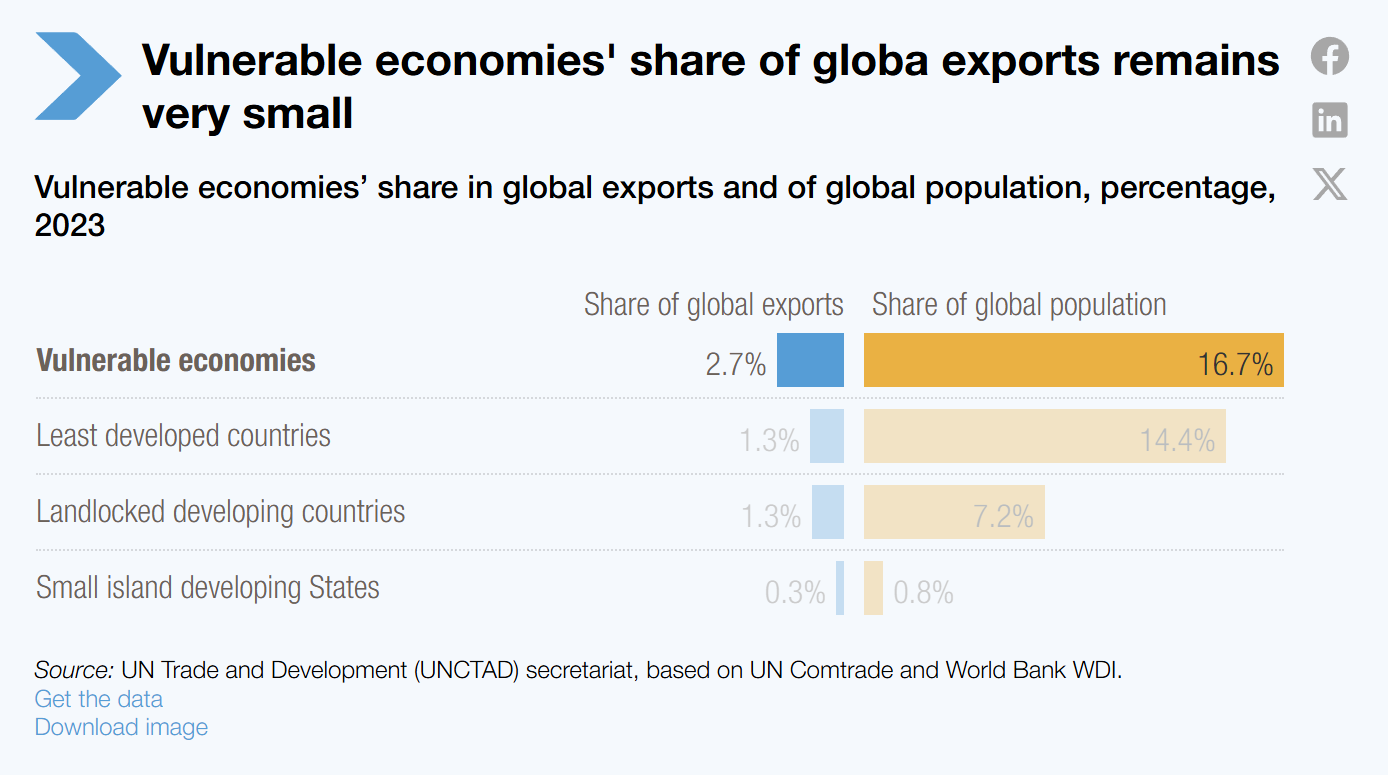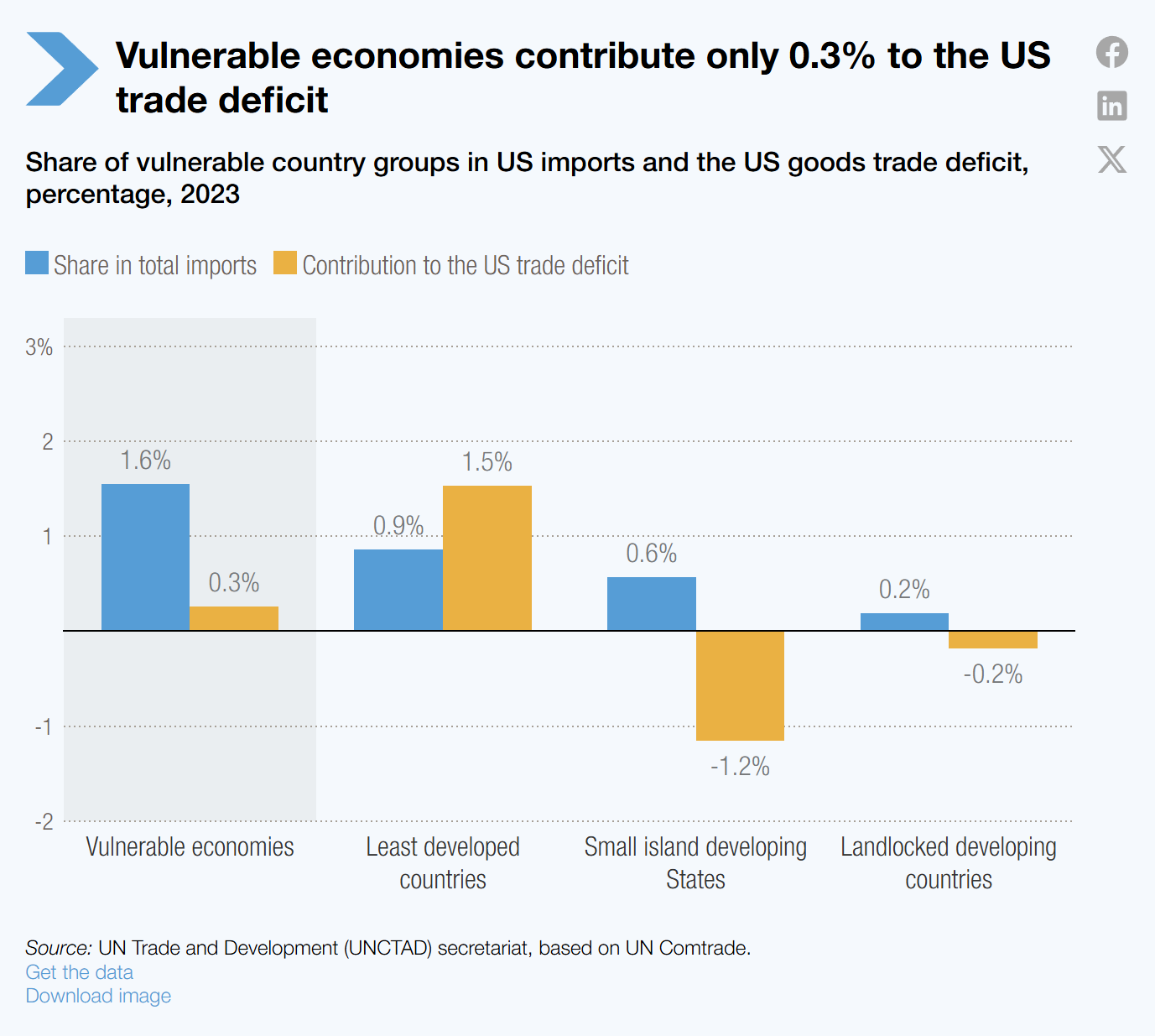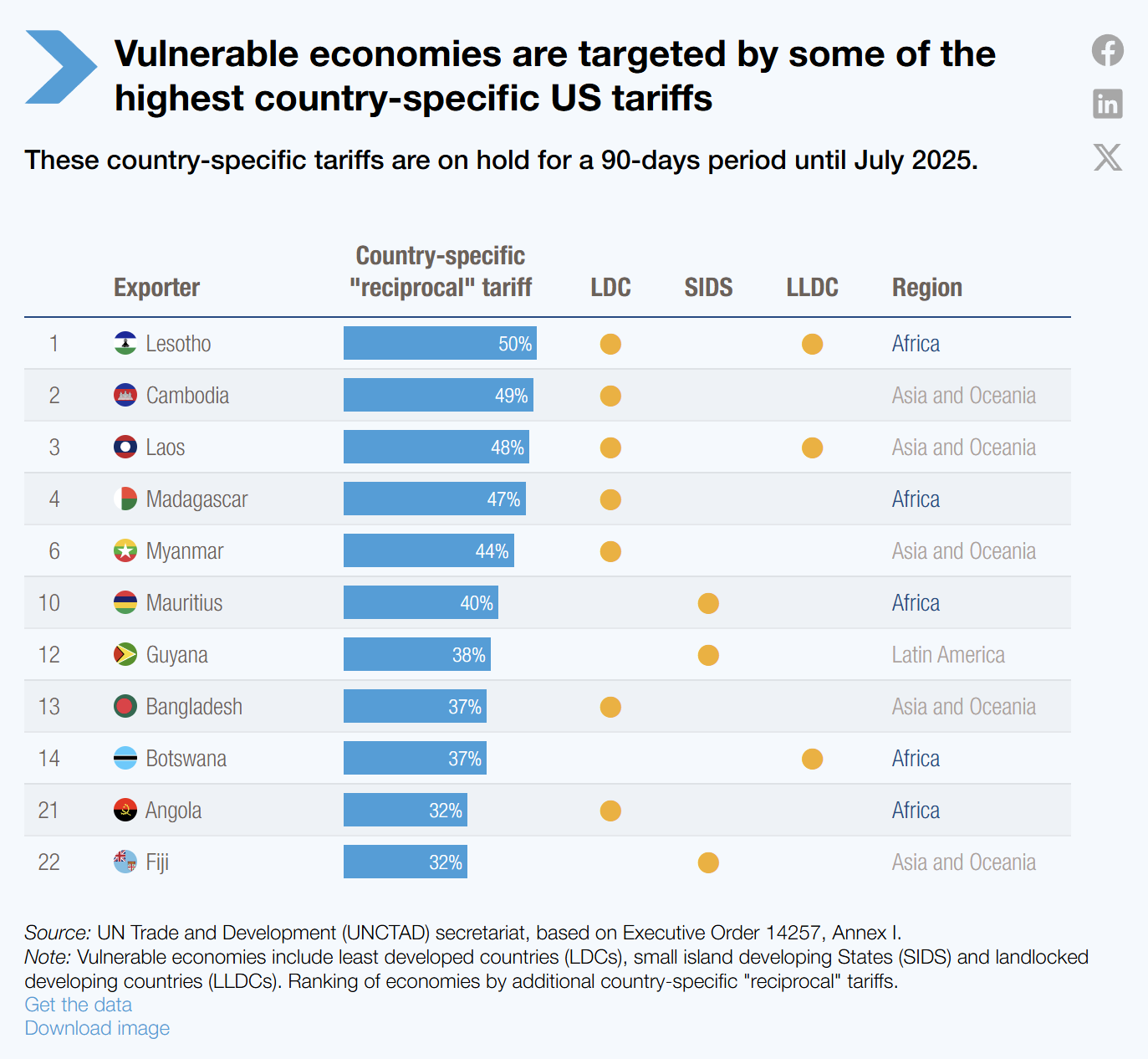With the joint statement on the China-U.S. Economic and Trade issued on May 12, global attention to such a tariff war, unprecedented in scale, was put on hold. However, under the storm, some weak calls have never been heard - more contradictions hidden under the surface of the dispute are becoming increasingly prominent, and underdeveloped economies are increasingly struggling.
The United Nations Conference on Trade and Development (UNCTAD) released a latest report, showing that the upgraded import tariffs recently announced by the United States will have a far-reaching impact on the global trade pattern and significantly increase the export costs of many developing countries, especially severely impacting vulnerable economies such as the least developed countries and small island developing countries.
A breeze on the US giant wheel
“The poorest countries should be exempted from tariffs because their impact on the U.S. trade deficit is minimal,” Rebecca Greenspan, head of the UNCTAD, recently called for, pointing out that the 44 least developed countries contribute less than 2% to the U.S. trade deficit, and raising tariffs will only make these countries’ existing debt crisis worse.
Greenspan used the example of Madagascar, whose main export to the United States is vanilla, and whose contribution to the U.S. trade deficit is so small that it is not even recorded, so there is no point in punishing such a country.

Vulnerable economies' share of global exports remains very small [Source: UNCTAD secretariat]
The United States is a vital export market for these economies, yet they account for only a small fraction of US imports and contribute just 0.3% to the US trade deficit.

Vulnerable economies contribute only 0.3% to the US trade deficit [Source: UNCTAD secretariat]
A disproportionate burden
Despite contributing little to the US trade deficit, vulnerable economies could face some of the highest new US tariffs under a scenario in which the country unilaterally raises tariffs to the levels announced between January and May 2025, including new country-specific measures.
Such a scenario would threaten vital exports and pose serious risks to their development.
From July 2025, the United States may impose tariffs of more than 25% on 22 developing economies, including seven least developed countries. The new tariff policy of the United States ignores existing trade agreements and World Trade Organization rules.

Vulnerable economies are targeted by some of the highest country-specific US tariffs [Source: UNCTAD secretariat]
The report said that the worst affected are developing countries in Asia and Oceania, as well as the least developed countries. In April alone, the average tariff of the United States on these countries doubled, and it may jump from 16% to 44% in July. The United States' tariffs on Latin American and Caribbean countries have soared more than 40 times, from less than 0.5% to 13%.
Key export industries such as agriculture and textiles in these countries face the greatest impact. The new tariff measures of the United States may further weaken the already fragile export prospects.
A game for the rich, a nightmare for the poor
The report calls on the world’s major economies to pay more attention to the long-term impact on developing economies when formulating trade policies.
Some experts believe that this tariff dispute means the end of the post-war international financial system. Greenspan is not sure, “If we know the final direction or outcome, we can adjust and formulate strategies. Otherwise, we will be at a loss, investment will be paralyzed, and we will not be able to achieve the scale that the world needs.”
The United States claims that its tariff policy is aimed at “protecting its own industries,” but reality tells us that this is more like a precise sniper attack. According to data from the United Nations Industrial Development Organization, the industrial modernization process in numerous developing countries has been forcibly interrupted. Take the textile industry in Southeast Asia as an example. After the United States imposed tariffs on China, the cost of importing raw materials in Vietnam, Cambodia and other countries soared by 30%, as well as millions of workers are facing unemployment. These countries have neither technological advantage to hedge costs nor bargaining power to change the rules, only become victims of the game between major powers.
What is even more ironic is that the United States uses tariffs to block goods from other countries while demanding that developing countries open their markets. Many African countries are forced to accept trade agreements containing toxic clauses. Kenya, as an example, imposes high tariffs on 80% of its agricultural products exported to the United States, but has to import American genetically modified corn at zero tariff. Everything is self-explanatory-what is US fairness? The strong make the rules, the weak swallow the bitter pill.
The Smoot-Hawley Tariff Act in 1930 triggered the global Great Depression, and now the United States seems to have historical amnesia. But the laws of the market are never merciful: small business owners in the United States are complaining that the price of imported parts has doubled, and the mountains of unsaleable soybeans piled up by farmers in the Midwest are rotting. Even more dramatically, the United States itself has also been downgraded by 1.8% in economic growth expectations, becoming the worst performer among developed economies.
As Nobel Prize winner in economics Joseph Stiglitz said, “Those who build walls will eventually be surrounded by walls.” When developing countries jointly launched the de-dollarization campaign, the old order is collapsing. What the world needs is not the tariff stick, but truly inclusive multilateralism.
(Editor: wangsu )


